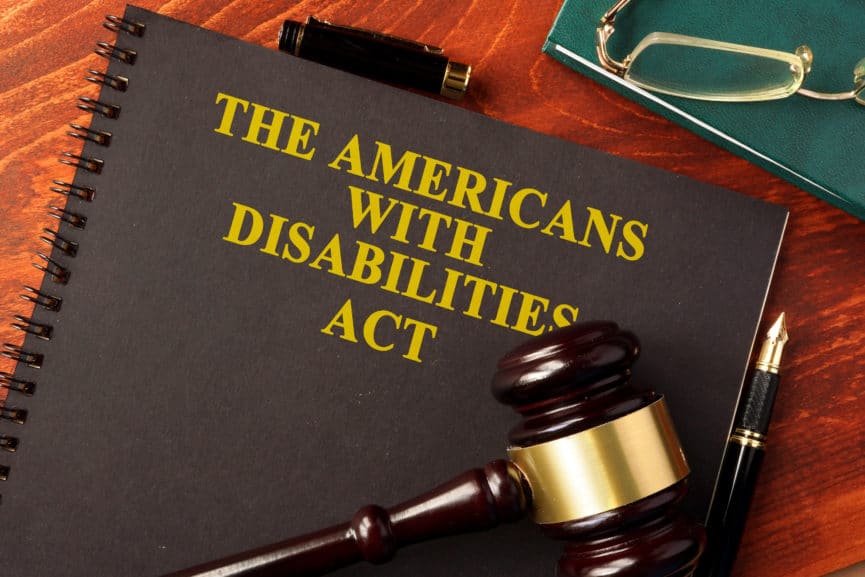If you’ve been the victim of disability discrimination, you know it’s an awful feeling – but what you may not know is that you could be entitled to financial compensation under federal and state laws.
What is Disability Discrimination in the Workplace?
Disability discrimination in the workplace occurs when an employer treats a qualified individual with a disability – whether the person is an employee or an applicant for employment – differently than it would treat another qualified individual. The key is that the employer treats the applicant unfavorably because he or she has a disability.
It can also occur when an employer treats an applicant or employee less favorably because he or she has a history of a disability or because the employer believes the employee or applicant has a physical or mental impairment that won’t last six or fewer months or that is minor.
Finally, disability discrimination can occur when an employer treats an applicant or employee unfavorably because he or she has a relationship with a person who has a disability (such as a spouse or child).
What Employers Are Required to Do
Most employers – those that are subject to disability discrimination laws – are required to provide reasonable accommodations to employees or applicants who have disabilities unless doing so would cause the employer undue hardship. (Undue hardship occurs when making accommodations would cause the employer significant difficulty or expense.)
The law forbids disability discrimination in any aspect of employment, such as:
- Hiring
- Firing
- Pay
- Job assignments
- Promotions
- Layoffs
- Training
- Benefits
- Any other term or condition of employment
Can You Sue for Disability Discrimination?
In many cases, victims of disability discrimination are able to sue for wrongful termination or other reasons. Your discrimination attorney can help you determine what steps you need to take in order to sue if you could be entitled to compensation.
If you suspect you have been the victim of this type of discrimination, you’ll probably want to get in touch with a lawyer as soon as possible. Your lawyer will need to know:
- What circumstances led up to the alleged discrimination? Were you applying for a job or already working for the employer?
- What happened that made you believe you were discriminated against? Did the employer openly discriminate against you, or was it more implied?
- What was the basis for the employer’s discrimination? Was the discrimination because of a disability you have or because you have a relationship with someone else who has a disability?
Your lawyer will ask you a lot of questions after you share your story, and it’s a good idea to answer them as completely as possible. The more your attorney knows about your situation, the better-equipped he’ll be to help you.
What Laws Govern Disability Discrimination?
The federal Americans With Disabilities Act and the Rehabilitation Act of 1973 cover employees when it comes to disability discrimination. In the state of California, the California Fair Employment and Housing Act, the Unruh Civil Rights Act, and the Disabled Persons Act protect workers and job applicants.
Do You Need to Talk to a Lawyer About Disability Discrimination?
If you’ve been discriminated against because of a disability, you could have legal recourse.
Call us at 818-617-9706 or 800-774-4163 for a free consultation with a Glendale employment attorney who can help.




